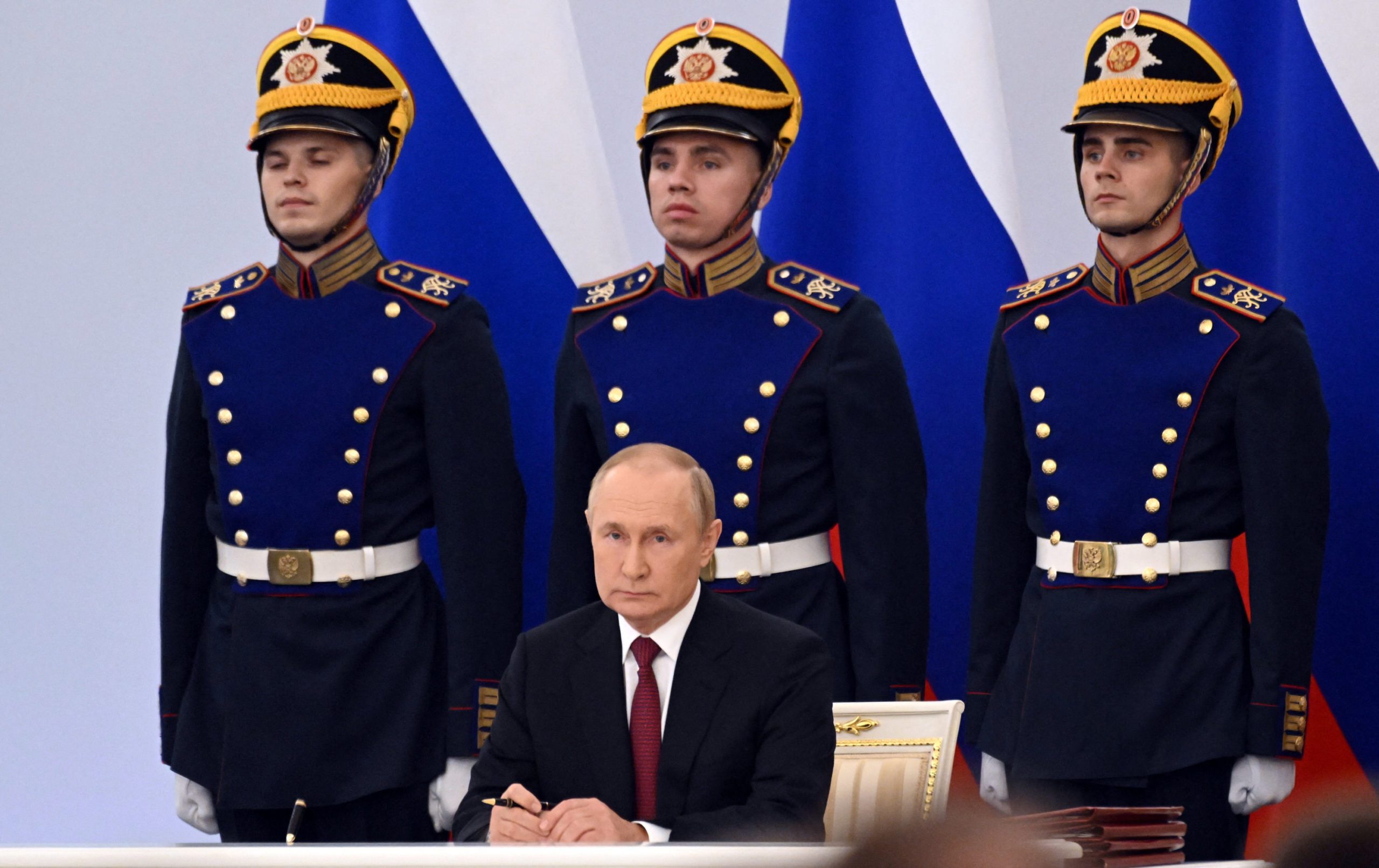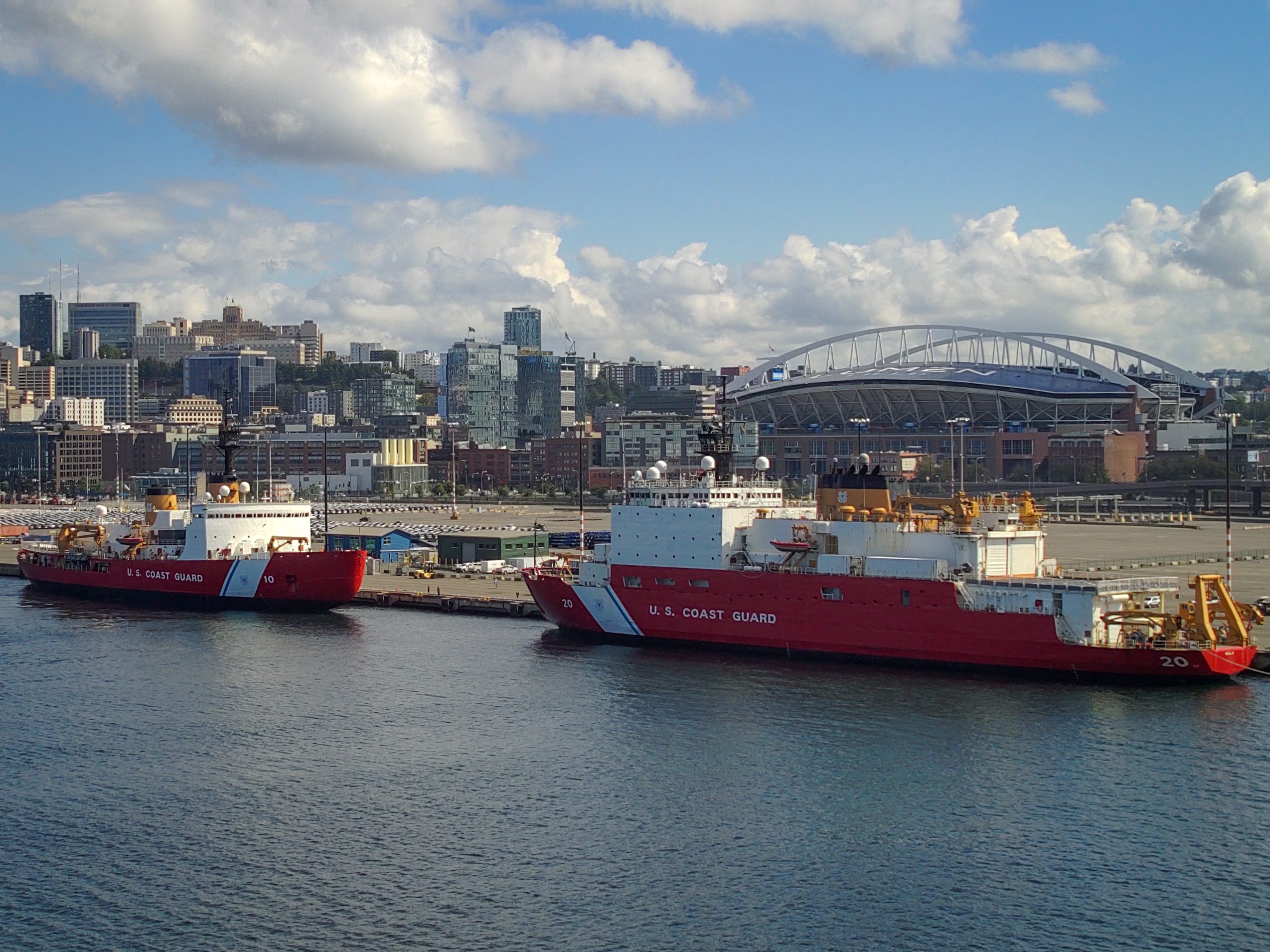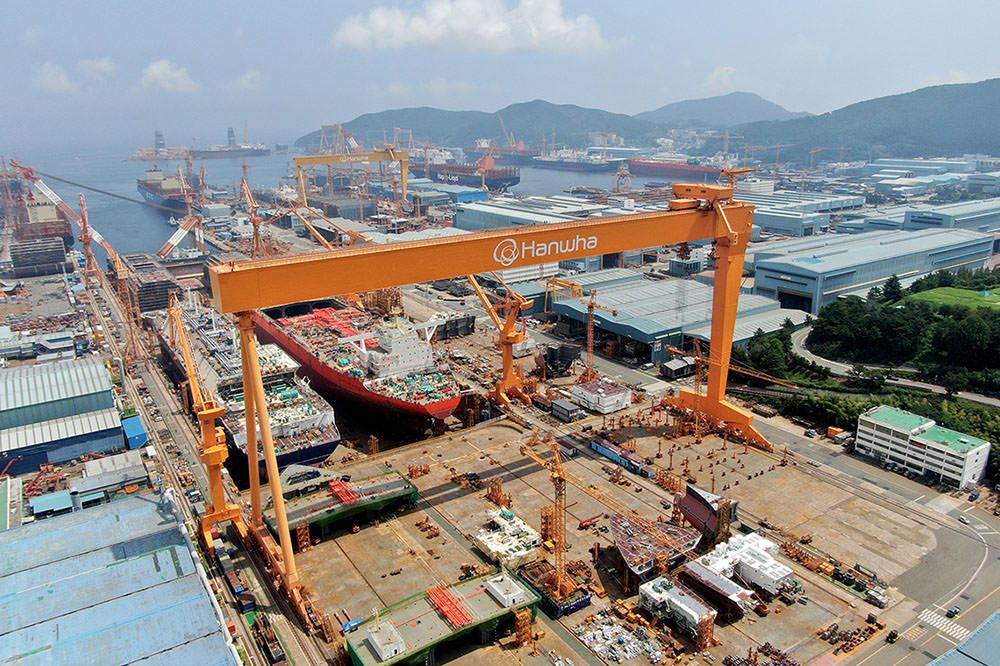By Marc Champion (Bloomberg) As Russia’s President Vladimir Putin formalized his annexation of a swathe of Ukrainian territory on Friday, the governor of Mykolayiv, a southern town under brutal bombardment since the start of the war, dismissed the move with a weary shrug.
“I don’t think it will change anything,” Vitaliy Kim said, speaking by video call from an office in his heavily damaged town. “People in Kherson and Mykolayiv region don’t want to go to Russia.”
According to the 41 year-old governor and military administration chief, Ukraine’s security services believe just 30 voters turned out for the referendum that ended Sunday in occupied areas of his region. Those places may get wrapped into a reconstructed Russian province of Kherson — that is if Putin’s military can keep hold of the territory.
From the perspective of Kim and many others in Ukraine, when it comes to the balance of the fight against Russia, “things are getting better every month.” Ukraine is getting more weapons from its allies, the Kherson counter-offensive just 30 km (18 miles) from his town is making slow but steady progress, and continued success in the northeast shows what can be done.
He described the illegal referenda across four partially occupied provinces — Donetsk, Luhansk, Zaporizhzhia and Kherson — as signs of failure rather than strength for Russia. So too the almost daily use of expensive S-300 anti-aircraft missiles to attack the city, modified with delay mechanisms to have greater impact against ground targets.
Recently, Iranian Shahed-136 drones have been added to the mix for Russia, but they have changed little, according to Kim. The scale of bombardment remains much the same, he said, and threats of further escalation don’t impress.
Kim said a cease-fire and settlement based on the current situation on the ground would set “a precedent that any big country can do what it wants with any smaller country.” President Volodymyr Zelenskiy has said that talks with Russia are impossible unless the return of all Ukrainian land is on the table.
The seemingly random Russian artillery and missile attacks on Mykolayiv have driven about half of the pre-war population of 500,000 away. The shipbuilding yards, once a pride of the Soviet Union unique in their capacity to build the largest vessels, can no longer work.
Kim said he assumed the Russian aim was to demoralize the population to the point they started to press for a cease-fire, even on Moscow’s terms, but he’s confident it isn’t working.
Some people have even returned to the city, after fleeing earlier in the conflict, he said. That means there’s less need for him to make the reassuring, jokey daily addresses for which he became famous at the start of the war, each kicking off with his trademark phrase: “We’re from Ukraine!”
People have become used to the war, ever since Mykolayiv — gateway to the key port city of Odesa, just a two-hour drive southwest – put up a desperate fight to halt the Russian forces that swarmed out of already occupied Crimea and across Ukraine’s open southern plains. They are hardly happy, but they have adjusted and not in a way that would be useful to Putin, according to Kim.
A former businessman, Kim assumes that Putin’s referenda and claimed annexations are the prelude to an attempt at negotiating a cease-fire that would allow the Russian president to keep the territory he seized since Feb. 24. But he also seemed unconcerned.
“They will try to do it, but this is just a position of negotiation,” Kim said. “We have another one.”
By Marc Champion © 2022 Bloomberg L.P.

 Join The Club
Join The Club











